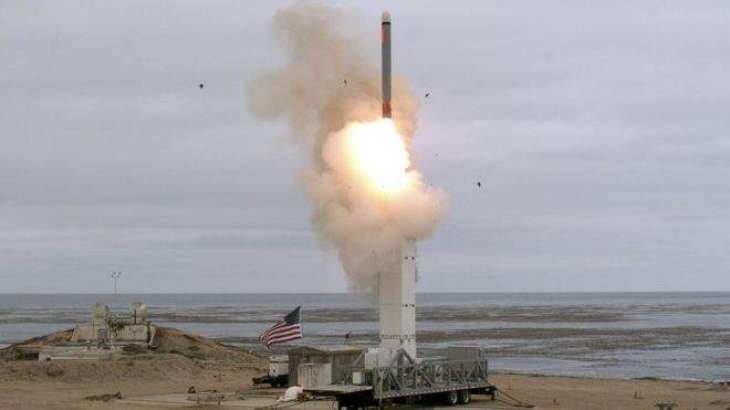Prospects are dim for Russia and the United States agreeing a new arms control deal to replace the Intermediate-Range Nuclear Forces Treaty (INF), experts told Sputnik on Friday
MOSCOW (Pakistan Point News / Sputnik - 23rd August, 2019) Prospects are dim for Russia and the United States agreeing a new arms control deal to replace the Intermediate-Range Nuclear Forces Treaty (INF), experts told Sputnik on Friday.Washington this month tore up the decades-old pact after accusing Moscow of breaching its terms, a claim it denied. Mere weeks later, the Pentagon tested a Tomahawk medium-range cruise missile that was banned under the deal, prompting President Vladimir Putin to order a tit-for-tat response.
Joshua Pollack, a senior research associate at the Middlebury Institute of International Studies at Monterey, California, suggested the missile test aimed to burn the bridges for whatever administration would come in after President Donald Trump and prevent it from reinstating the pact.
"I strongly suspect that the US cruise missile test was designed to make it as difficult as possible for any successor to President Trump to reconstitute the INF treaty in any form. Now, all Tomahawk missiles could be seen as contravening the treaty, and the US Navy is not going to retire the Tomahawk anytime soon," he said.
The missile blasted off from a US Navy site southwest of Los Angeles on August 18. A Pentagon spokesman told Sputnik that the launcher used to fire it off was a reconfigured Mark 41, the type found in the Europe-based Aegis Ashore missile shield, which Russia has long been arguing against.
"The use of a Vertical Launching System certainly plays into official Russians claims about the offensive potential of the Aegis Ashore defensive systems in Poland and Romania, but I doubt this was the intention," Pollack said.
He argued that the launcher was simply the most convenient device to enable a ground-launched test at the earliest possible time using an existing missile.
The expert said Russia had several options to respond to the launch, such as reconverting its new short-ranged intercontinental ballistic missile, the Rubezh, to an intermediate-range one with a heavy payload, which is what many observers expect. But he added he hoped it would not come to this.
"It's my hope that President Putin will opt for restraint. The new arms race isn't working in anyone's favor," he said.
Michael O'Hanlon, the director of research for the Foreign Policy program at the Washington-based Brookings Institution, agreed that a new deal setting a cap on medium-range nuclear and conventional missiles would not happen overnight.
"We could imagine an accord that set a cap (greater than zero, but much less than New START numbers for long-range systems) on intermediate-range missiles and/or nuclear-armed intermediate range missiles. But I doubt it will happen anytime soon," he said.
President Trump has repeatedly argued that any new nuclear missile pact should also include China. Beijing's envoy to the UN Security Council slammed Washington on Thursday for dragging his country into the missile row. He stressed that China's nuclear arsenal was for defense purposes.




